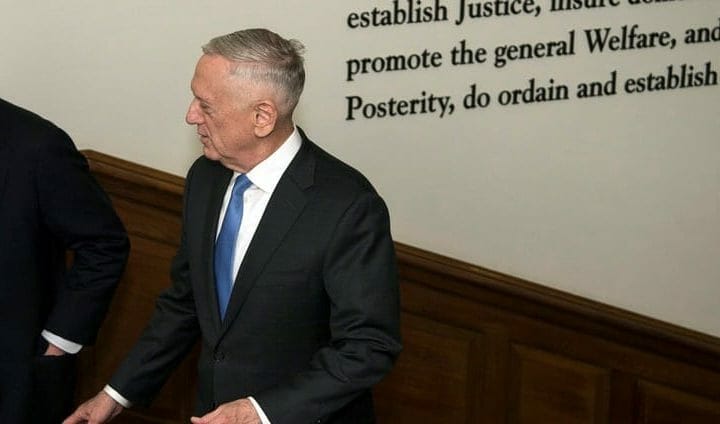What’s going on with U.S. policy in Syria? After a year of solid gains, President Trump seems to be intent on snatching defeat from the jaws of victory. Allied forces have been on a roll; our support of Syrian rebel forces helped deal the Islamic State a serious defeat on the battlefield.
Their command structure may still be intact, and they still constitute a terrorist threat, but they no longer hold any significant territory in either Syria or Iraq. They are almost completely destroyed as a conventional fighting force, and allied-backed rebel forces are turning their attention to fighting the Syrian regime. Now is the time to be “winning the peace,” helping the rebels govern the territory they hold and relieving the humanitarian crisis ISIS left in its wake.
Trump’s surprise announcement: Giving Up Syria
But in a speech in Richfield, Ohio last Thursday, the president signaled that U.S. involvement in the conflict might soon end, despite the fact that U.S. military officers on the ground have said stabilizing the region could take a year or more.
“We’ll be coming out of Syria, like, very soon,” he said. “Let the other people take care of it now. Very, very soon, we’re coming out.”
A cynic would say this sudden reversal is the work of incoming National Security Adviser John Bolton. But that analysis doesn’t make sense. Yes, Syria is a Russian client state, so pulling out feeds the narrative that the administration is doing Moscow’s bidding. But Syria is also an Iranian client state, and a U.S. withdrawal now would hand the Iranians a present.
If there’s one country that John Bolton would be most reluctant to hand any sort of advantage, it’s Iran. He has repeatedly called for scrapping the nuclear deal and has called for attacks on the country in the past.
Syrian Policy and Russian Relations
Even regarding Russia, Bolton now sounds more like his predecessor, Lt. Gen. H.R. McMaster, than he does the president. Writing in The Hill in mid-February following Robert Mueller’s indictment of 13 Russians in connection with election interference, Bolton said, “This is, pure and simple, war against the American idea itself.”
And while Bolton is unapologetic for supporting the 2003 invasion of Iraq, he has been critical of policy decisions made after the invasion, and called President Obama’s decision to withdraw all U.S. troops in 2011 “the worst decision.”
That doesn’t sound like a man who would be counseling the president to pull up stakes before the job is finished.
a strong u.S. record of soft power victories
Trump followed his surprise announcement by freezing the $200 million in aid reserved for infrastructure projects in rebel-held territory inside Syria. Properly applied, this aid would help the rebel forces solidify their power and bring much needed relief to the Syrian people. Such “soft power” efforts are vital to any post-conflict effort, and the U.S. does them well. We practically invented the idea with the Marshall Plan after the Second World War.
For most of my military career, I specialized in this application of soft power, which is sometimes simplistically, and derisively, called “nation building.” In both Bosnia and Afghanistan, I saw firsthand how funding small-scale projects to provide the local civilian population with small amounts of relief can pay huge dividends. “When you have nothing,” Afghan leaders would tell me, “one pencil is like a thousand.”
Providing for post-conflict reconstruction does not just help alleviate human suffering. It demonstrates the allied commitment to the well-being of the population and denies the enemy the opportunity for both propaganda and recruitment. Reconstruction projects demonstrate that the population’s best interest is in supporting the rebel forces and the allied coalition.
Dismissed Secretary of State Rex Tillerson understood this, which is why he arranged for the aid in the first place. If Trump is suspending the aid — an insignificant figure in a $1.3 trillion Federal budget — simply because it was Tillerson’s idea, it would be one of his most short-sighted decisions.
It saddens me to entertain the notion that the president would take this action simply to undo a Tillerson decision. But based on Trump’s sudden and unpredictable reversal on his Syria policy, I cannot dismiss the idea.
Hopefully, Bolton and Secretary of Defense James Mattis will talk some sense into the president, and our commitment to the Syrian resistance will continue. Quitting now would be more than a shame… it would be a dereliction of duty.



